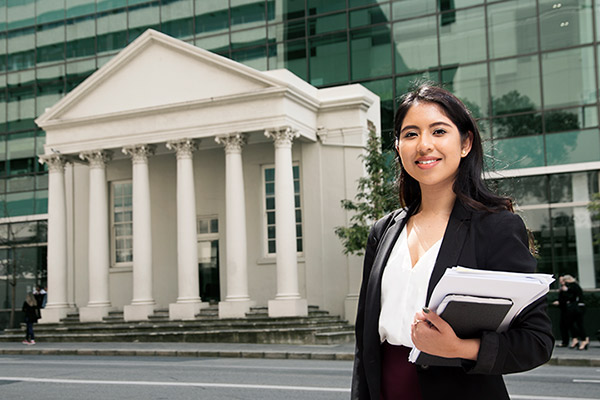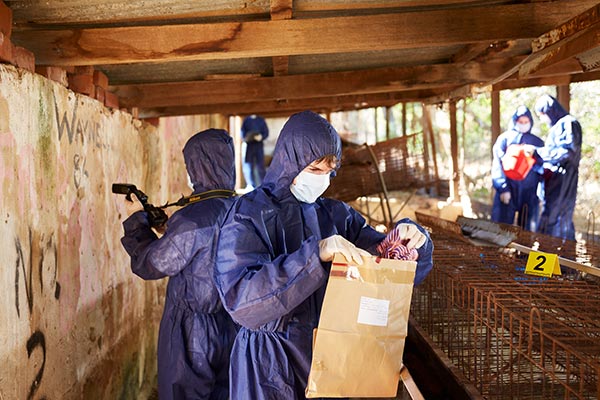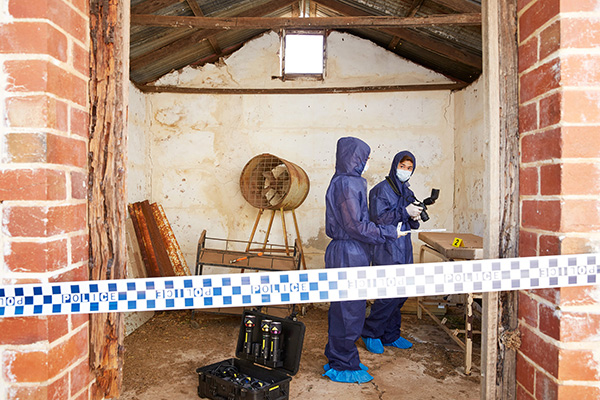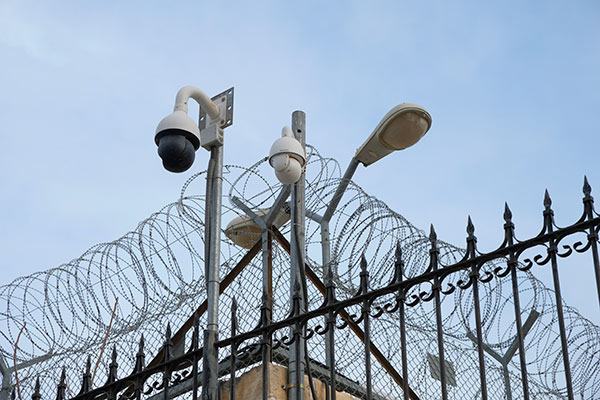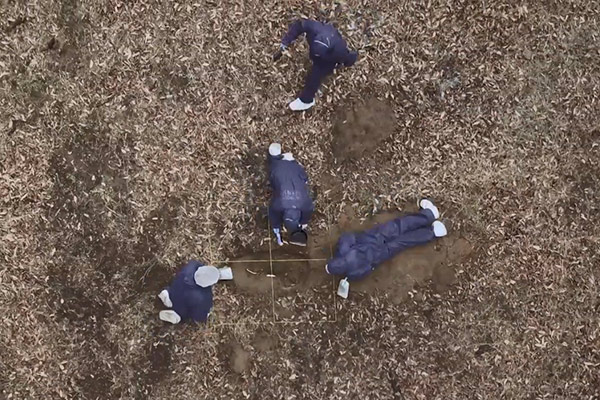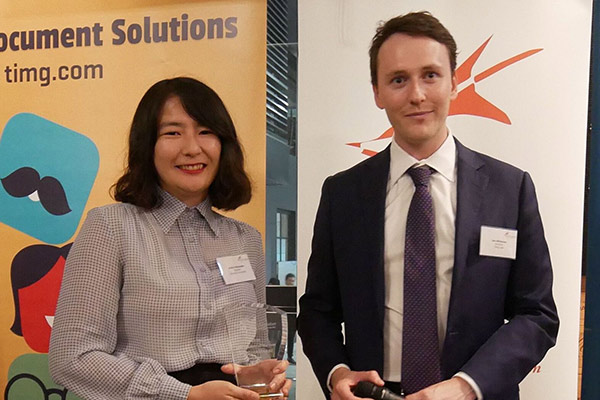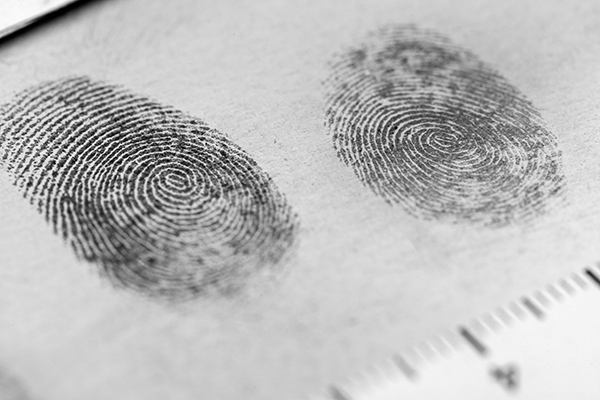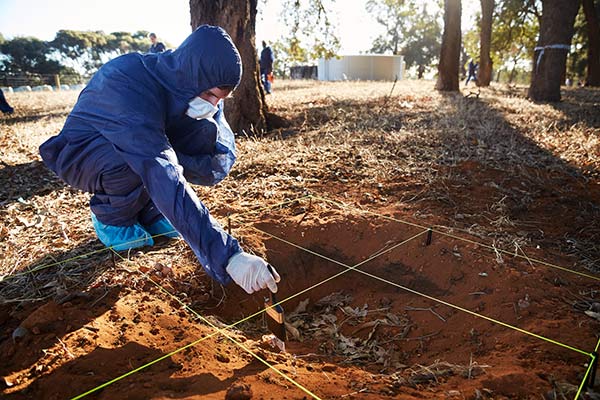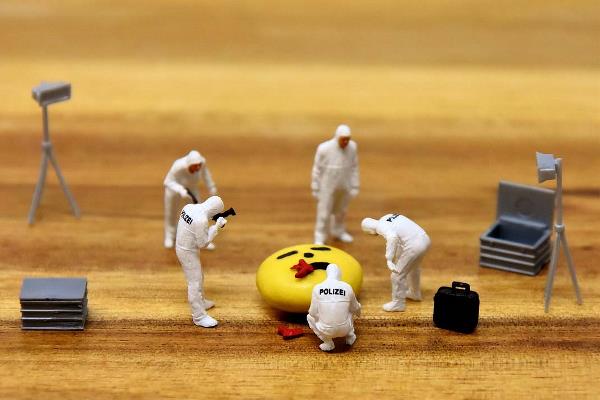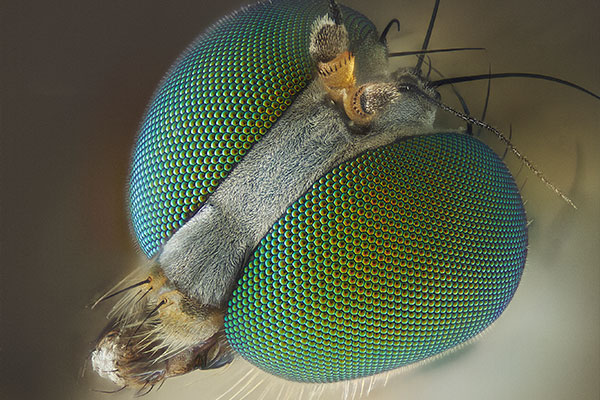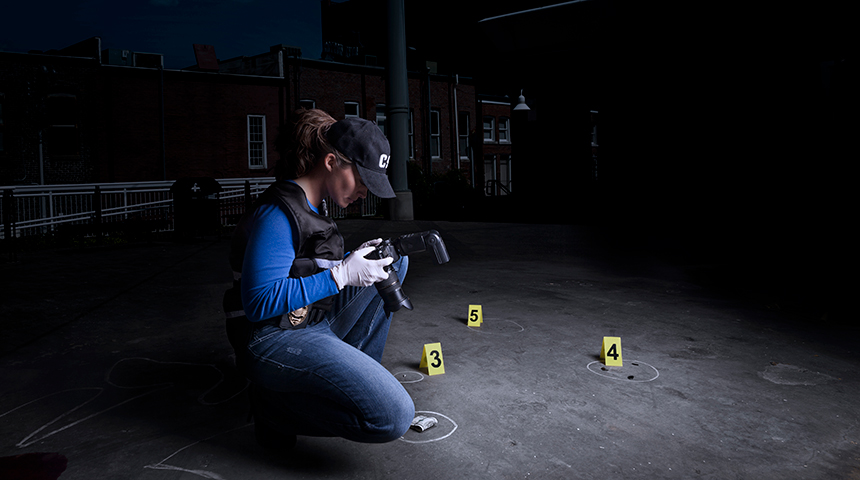
Wondering what you can expect from a degree in forensics?
We’ve gathered together some of Murdoch's best and brightest forensics students ready to give you an unfiltered look at what studying forensics is really like.
Introducing our forensic science students
Cody: Currently undertaking a Master of Forensic Science, Cody has completed an undergraduate degree in forensic biology and toxicology, with a double major in molecular biology.
Jamie: Home artist and self-confessed science geek, Jamie discovered a surprise passion for forensics in her first year of university. Originally wanting to study the molecular mechanics of genetics, Jamie found herself captivated by the science of forensics.
Elizabeth: In her final semester of a Master of Forensic Science, Elizabeth has also completed an undergraduate in molecular genetics and biotechnology, and honours in biomedical science.
Tiana: Avid hockey player Tiana graduated from Murdoch with a double degree in forensic biology and toxicology and criminology and is currently completing her final semester of a Master of Forensic Science.
Why did you decide to study at Murdoch?
Cody: "After looking at all my options for future studies, I focused on the job opportunities each course would provide me, which led me to choosing Murdoch. It appeared to offer the best in terms of future employment and had a great focus on practical work."
Jamie: "I always knew Murdoch was renowned for their veterinary and science degrees. Given I was a high-school science nerd I knew Murdoch was the best fit. The longer I spent at Murdoch, the more I loved the academic staff and university grounds."
Tiana: "The connections you make through university studies are important both professionally and for your own sanity. The entire forensic community at Murdoch is very supportive from academics to peers."
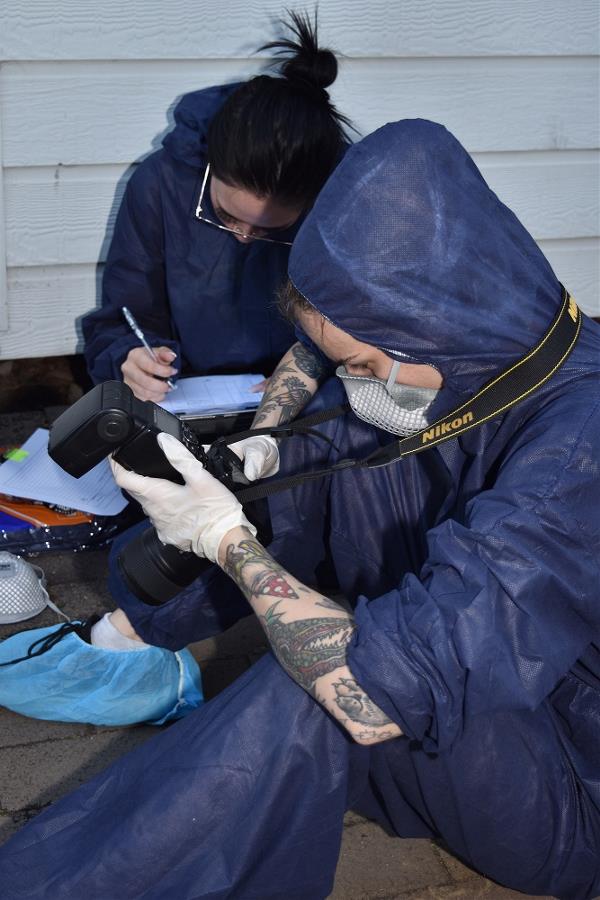
Jamie reviewing her forensic evidence photographs.
What has been the highlight of your forensic science degree?
Cody: "The trips to Whitby Falls Farm for our mock crime scene investigations. Each semester all students gather together in crime scene groups to undertake a full investigation of either a suspicious death or grave recovery. Taking part over two days, this exercise is particularly interesting as it allows you to put all your learning into action."
Jamie: "Taking part in a cold case review was one of the greatest highlights in my whole university journey! I was proud to be part of something that brought together everything we had learnt, which wasn't reflected in an assessment or a grade."
Elizabeth: "Definitely the practical side! We did everything from blood pattern analysis, to processing staged low volume crimes, such as burglaries, enabling us to practice our teamwork and time management skills."
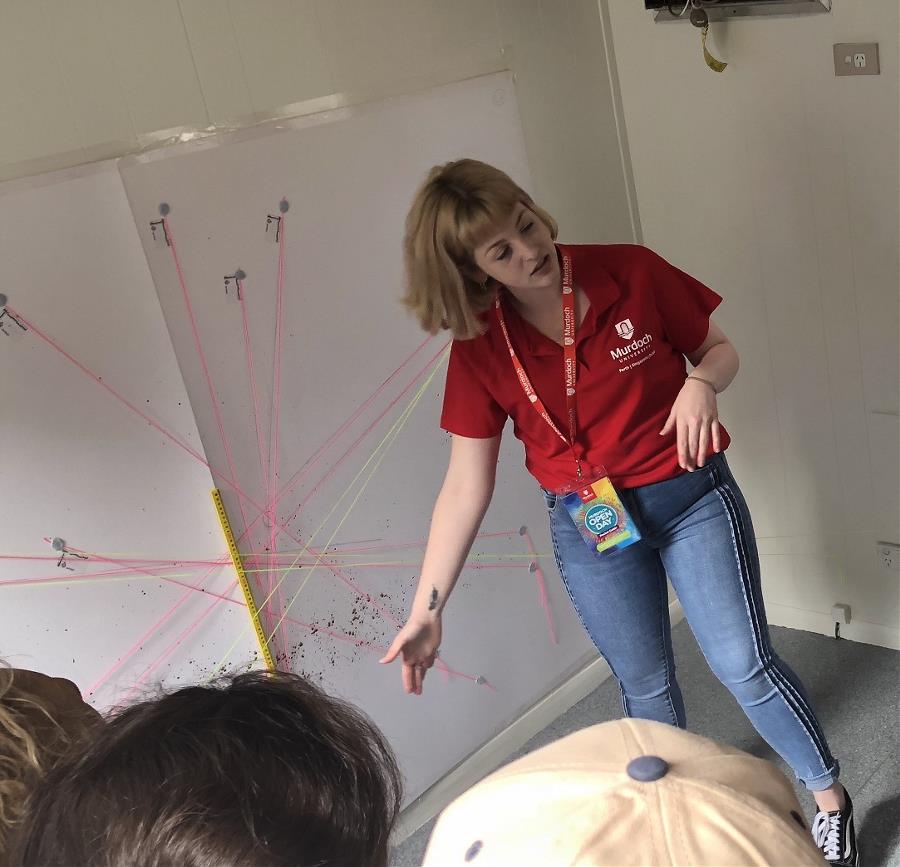
Cody using her skills learned in Bloodstain Pattern Analysis to captivate campus guests at Murdoch Open Day.
What's your biggest achievement?
Jamie: "Besides being chosen to work on cold cases, my work on an independent study contract on Familial DNA and also the Miscarriage of Justice unit which focused on the Leanne Holland case. These experiences allowed me to explore new lines of passion."
Elizabeth: "Last year I applied for some work experience opportunities and was ultimately selected to help set up a genetic analyser. I consider this one of my greatest achievements as I am always looking for ways to involve myself and expand my skill base."
Tiana: "Being selected to work on the cold cases is one of my greatest achievements, allowing me to work alongside both my academics and peers."
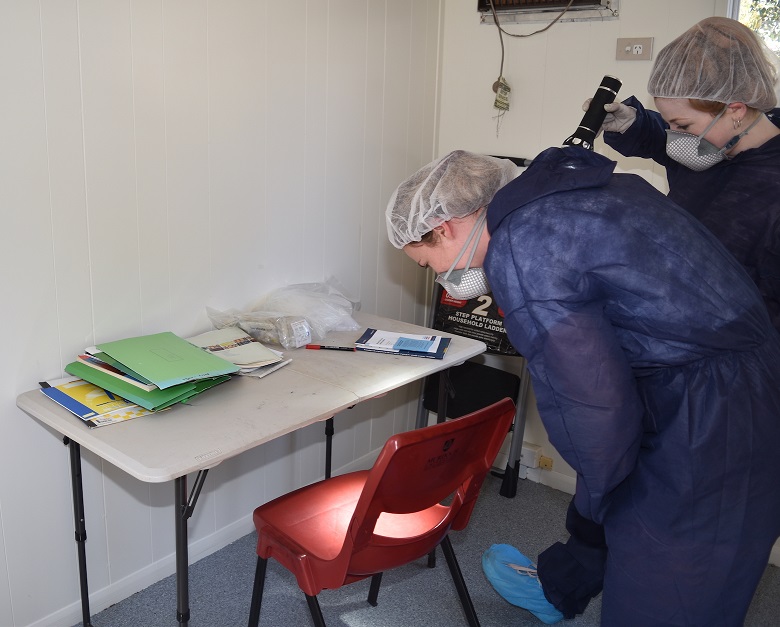
Cody and Tiana examining a 'crime scene' at Murdoch.
What do you love about Murdoch's forensic science course?
Cody: "I enjoyed my undergraduate degree a lot but wanted to explore the crime scene investigation side in more detail. I love how the Master of Forensic Science course focuses more on practical work which has been tailored to what employment agencies are seeking. Being able to undertake mock crime scenes and work closely with the experts currently in these fields really opens opportunities for networking and employment."
Elizabeth: "All the academics are so invested in advancing forensic science and passing on their knowledge. When you're in class it doesn't feel like a teacher-student environment, it feels like a collaborative space. This isn't easy to achieve and it's great to be a part of."
Tiana: "The in-depth opportunities we're given to develop skills in each area of forensics. This has helped me to discover the areas I really enjoyed and want to pursue."
What do you hope to achieve at the end of your degree?
Cody: "I would love to be a published author and be employed by WA Police or any other external forensic laboratories."
Jamie: "To have full confidence in myself, knowing how to be a professional, systematic and thorough forensic scientist."
Elizabeth: "I'm itching to get into the workforce and utilise my knowledge and skills in real situations. If I need to travel for employment, I feel I have gained enough skills from Murdoch to succeed wherever I end up. I also haven't ruled out the potential to continue my studies and undertake a PhD."
Tiana: "I'm really hoping to be employed within a forensic-based job and am happy to go wherever there is an opportunity."
How would you like to use your study to make a difference in the world?
Cody: "Offering resolution. Although this line of work is only a part of the entire picture, it would be humbling to know what you do now and the efforts you take can make a change."
Elizabeth: "I have always wanted to be a part of a team that can make a positive change. Whether contributing to a case bringing closure to those involved in crime, or by contributing to research advancing science."
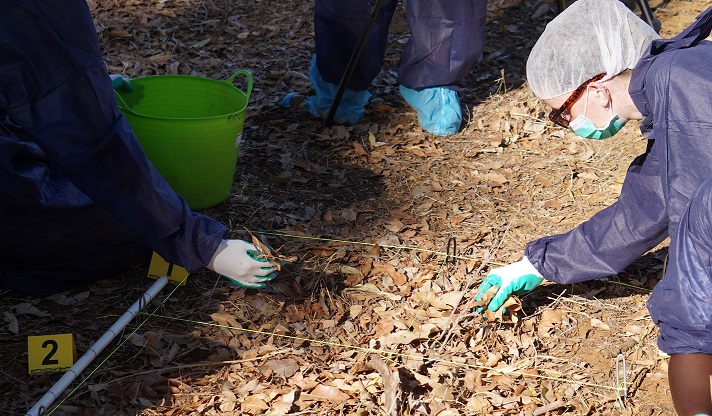
Elizabeth systematically searching for evidence at a suspected grave site.
How have you benefited from thinking for yourself?
Cody: "Learning to trust my own judgement based on what I have learned rather than just expecting someone to provide me with the right answer. Science is based on critical thinking and learning to challenge things that don't seem right."
Elizabeth: "At a tertiary level, thinking for yourself is an invaluable tool to have. Sometimes when I start a task I'm not always sure where to start, but the skills I've acquired have helped me to build the foundations needed to complete even the most challenging tasks.

